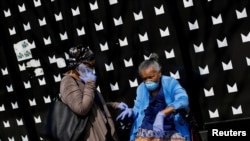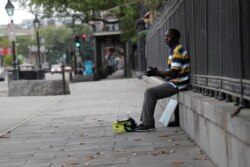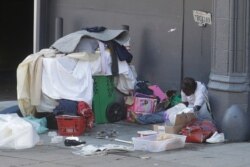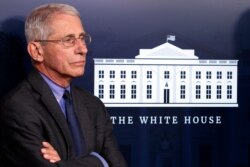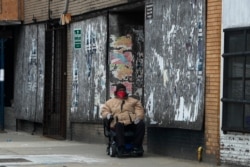In Louisiana, two-thirds of the deaths from coronavirus have been among African Americans, in a state where blacks make up only one-third of the population.
"What you see playing out is something that's very tragic," said Gov. John Bel Edwards.
While data is incomplete, a trend is apparent: COVID-19 is hitting African Americans harder than white populations.
Mississippi is about 38% African American, but blacks account for more than half of the COVID-19 deaths. Forty-three percent of coronavirus deaths in Alabama are among African Americans, who account for 27% of the state's population.
The problem is not confined to southern states. Disparities show up in Illinois and Michigan, especially in cities.
Chicago Mayor Lori Lightfoot said the disparities in Chicago "take your breath away." African Americans make up 72% of coronavirus deaths in a city that is 30% African American.
It's not that blacks are more likely to become infected.
"We don't want to give the impression that the African American community is more susceptible to the virus," White House coronavirus task force coordinator Deborah Birx said. "We don't have any data that suggest that."
But they are dying at higher rates, she said.
Experts say the difference results from the unequal status of blacks in American society, from higher rates of chronic illnesses to job opportunities that result in more exposure to the virus.
"We have a particularly difficult problem of an exacerbation of a health disparity," said National Institute of Allergy and Infectious Diseases Director Anthony Fauci. "We've known literally forever that diseases like diabetes, hypertension, obesity and asthma are disproportionately afflicting the minority populations, particularly the African Americans.”
These are the same conditions that put patients at higher risk of severe illness and death, he added.
"It's very sad," Fauci said. "There's nothing we can do about it right now except to try and give them the best possible care."
The extent of the racial disparities is unclear because not all localities are reporting demographic information and data is incomplete in many of those that are.
But what information is available shows that the pandemic is underscoring long-standing, deep-rooted problems of inequality.
"It starts out with the disparity that has already existed in health care provision for people of color. We already started out with an unequal system of health care," Illinois Gov. J.B. Pritzker said Monday. "It gets massively exacerbated when you bring on something like COVID-19."
African Americans are less likely than whites to have health insurance. About 11% were uninsured in 2018, compared to 7% of whites, according to the Kaiser Family Foundation.
A higher percentage lives in poverty: 22% vs. 9% of whites.
While officials are ordering people to stay home to prevent the illness from spreading, that puts African Americans at a disadvantage. A smaller percentage have jobs that allow them to work from home. Before the coronavirus crisis, 29.9% of white employees could telework, compared to 19.7% of African Americans, according to the Economic Policy Institute, a Washington, D.C.-based research group.
The pandemic highlights a persistent problem in American society, noted NIAID's Fauci.
"When all this is over ... there will still be health disparities, which we really do need to address in the African American community."




